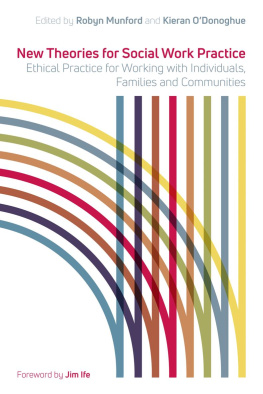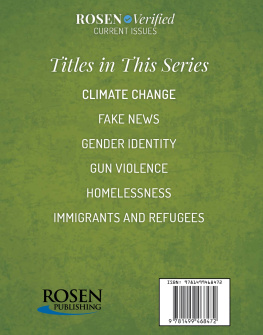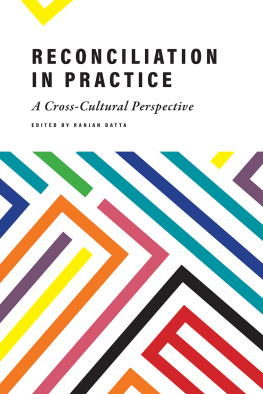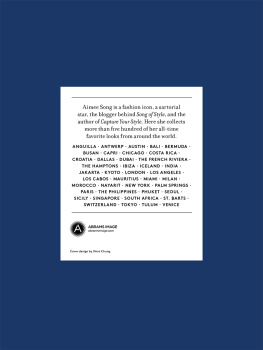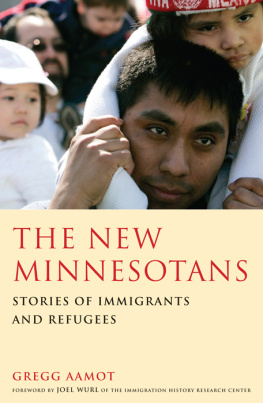To the people who inspire me:
My parents, my husband, my sister, my best friends Debbie and Janie, and the refugees who trusted me with their stories and became my teachers.
And to my daughter, Maya, who I hope to inspire.
Aimee Hilado
To the students who have shared their personal histories and committed to dreams for the future, and to every client whose courage and resilience has moved them beyond the worst of despair, this volume honors you.
Marta Lundy
Sara Miller McCune founded SAGE Publishing in 1965 to support the dissemination of usable knowledge and educate a global community. SAGE publishes more than 1000 journals and over 800 new books each year, spanning a wide range of subject areas. Our growing selection of library products includes archives, data, case studies and video. SAGE remains majority owned by our founder and after her lifetime will become owned by a charitable trust that secures the companys continued independence.
Los Angeles | London | New Delhi | Singapore | Washington DC | Melbourne
Models for Practice With Immigrants and Refugees
Collaboration, Cultural Awareness, and Integrative Theory
- Edited by
- Aimee Hilado
- Northeastern Illinois University
- Marta Lundy
- Loyola University Chicago

- Los Angeles
- London
- New Delhi
- Singapore
- Washington DC
- Melbourne
Copyright 2018 by SAGE Publications, Inc.
All rights reserved. No part of this book may be reproduced or utilized in any form or by any means, electronic or mechanical, including photocopying, recording, or by any information storage and retrieval system, without permission in writing from the publisher.
FOR INFORMATION:
SAGE Publications, Inc.
2455 Teller Road
Thousand Oaks, California 91320
E-mail: order@sagepub.com
SAGE Publications Ltd.
1 Olivers Yard
55 City Road
London, EC1Y 1SP
United Kingdom
SAGE Publications India Pvt. Ltd.
B 1/I 1 Mohan Cooperative Industrial Area
Mathura Road, New Delhi 110 044
India
SAGE Publications Asia-Pacific Pte. Ltd.
3 Church Street
#1004 Samsung Hub
Singapore 049483
Library of Congress Cataloging-in-Publication Data
Names: Hilado, Aimee, editor. | Lundy, Marta, editor.
Title: Models for practice with immigrants and refugees : collaboration, cultural awareness and integrative theory / [edited by] Marta Lundy, Loyola University Chicago, Aimee Hilado, Northeastern Illinois University, Chicago.
Description: Los Angeles : SAGE, [2018] | Includes bibliographical references and index.
Identifiers: LCCN 2016045550 | ISBN 9781483377148 (pbk. : alk. paper)
Subjects: LCSH: Social work with immigrantsUnited States. | ImmigrantsServices forUnited States. | RefugeesServices forUnited States.
Classification: LCC HV4010 .M63 2018 | DDC 362.89/912530973dc23 LC record available at https://lccn.loc.gov/2016045550
Printed in the United States of America.
This book is printed on acid-free paper.
Acquisitions Editor: Nathan Davidson
Editorial Assistant: Alissa Nance
Production Editor: Andrew Olson
Copy Editor: Karin Rathert
Typesetter: Hurix Systems Pvt. Ltd.
Proofreader: Victoria Reed-Castro
Indexer: Mary Mortensen
Cover Designer: Scott Van Atta
Marketing Manager: Katherine Hepburn
Preface
Overview
The purpose of our edited book is to establish a foundational framework for mental health and community practitioners and other providers wanting insight into best practices and considerations when working with vulnerable and trauma-exposed immigrants and refugees. The framework is grounded in critical thinking, solidly lodged in a collaborative and empowering relationship that strives for client self-determination, and is strengthened by the ecological systems perspective that facilitates a thorough, culturally mandated and openly reflective questioning of the needs and wishes of the often trauma-exposed, transnational populations. The possible utility, adaptation, and application of Western theory and practice strategies are discussed in relation to culturally relevant and population-specific norms throughout the text. The text provides a number of case examples and conceptual/applied frameworks that employ integrative strategies to inform and empower immigrants and refugees. The book also includes broad discussions related to ethical best practices across international settings and when working with families and children, indigenous communities, organizations, and vulnerable and trauma-exposed immigrants and refugees across diverse service settings. In doing so, our goal is to define transnational practice (i.e., direct services and therapeutic interventions with culturally and linguistically diverse immigrant and refugee populations across global settings) using an integrative approach to applying theory and interventions with vulnerable and/or trauma-experienced populations. We believe this type of transnational work requires a collaborative approach that honors the self-determination of the client system (individual, couple, family, or community) at all times, with careful judgment of a respective countrys laws, policies, and regulations that could impact that client system. And in this process, the professionals working with transnational groups should improve their skills in critical thinking, advocacy, and cultural competence in addressing the unique and diverse needs of new immigrant arrivals.
Organization of the Book
The book is intended to guide readers through relevant practice theories with transnational populations by providing examples of integrative models in practice with case examples (when applicable) for working with individuals, communities, and within organization settings. We begin with three chapters in : Physical and Mental Health Stabilization: The Importance of Well-Being to the Adjustment of New Immigrants, Hilado & Allweiss) is dedicated to discussing the physical and mental health needs of immigrants and refugees and the resources available to stabilize overall well-being.
: Postcolonial Feminist Social Work Perspective: Additional Considerations for Immigrant and Refugee Populations, Deepak). Together, this section explores the potential misuse of Western theory when working with non-Western individuals and communities, while providing a framework and examples of using Western theory in a manner that is collaborative, culturally sensitive, and flexible to the needs of the respective client system and circumstance.
: Preparing a Local and Volunteer Workforce, Sokhem et al.). These six chapters provide examples and frameworksboth conceptual and appliedthat are used to illustrate the value and usefulness of an integrative framework for practice.


